There’s a chill in the air and the mid-April snow is lightly falling amidst an old mining area in Breckenridge, Colorado. The adrenaline is palpable and one can feel the extreme sense of urgency as a group of 10 medical students enrolled in a program offered by Sidney Kimmel Medical College (SKMC) approach the site of a hypothetical plane crash with a curiosity and eagerness to help. They happen upon five injured victims at the crash site and quickly get to work. First triage, then treatment, and finally evacuation. A job well done.
This scenario is part of an immersive four-week long, custom designed, educational experience aptly named BreckWild (Breckenridge Wilderness and Environmental Medicine Elective) that is offered to fourth year medical students through Philadelphia’s Thomas Jefferson University in conjunction with Wilderness Medical Society (WMS) and the Breckenridge Outdoor Education Center (BOEC). The goal … to provide a comprehensive introduction to the field of wilderness and environmental medicine while gaining hands-on experience and exposure to skills required for expedition planning, rescue and wilderness survival.
Now in its fourth year of existence, the month-long “wild” experience is divided into two 2-week sessions with half the course taking place at BOEC’s Griffith Lodge where students are given formal lectures in Wilderness Medicine principles and specific topics by leaders in the field, many of whom are recognized nationally. In addition to the didactics, students participate in skill workshops and hands-on instruction in survival and pre-hospital patient assessment, management and retrieval such as the aforementioned mass casualty incident (MCI). The scenario itself – just one of multiple scenarios over the two weeks – was a small plane crash with multiple critical victims where the students had to establish an incident command hierarchy, locate the crash site from a mile away (BOEC van) and transport three critical victims back out, trudging through a mile of snowy trails, post-holing if they stepped too far to one side. And all of this was done in the dark.
“There were several moving parts to make this scenario come to life, including assistance from the BOEC staff to drive the vans to the Incident Command Center (ICS) tent site, the extraction site and the site of the crash,” says Emergency Medicine Physician and BreckWild co-director Dr. Lara Phillips. “Moulage (trauma make-up) was done on several gracious volunteer faculty to play the victims and there was coordination between the group leaders to recon the trails, plan communication methods and supervise the care rendered by the students.”
In the second half of the course the students are transitioned from the alpine environment of Breckenridge to the desert environment in Utah where students are then supervised in a field-practicum incorporating medical assessment, treatment, evacuation, survival and improvisational techniques. During these 10 days, the first half is spent canoeing the Green River while the second half is backpacking through the San Raphael Swell along the Muddy Creek.
As the host of Breck Wild, the BOEC works closely with the course directors and WMS on this course, which was developed and brought to the BOEC by a former employee and now medical doctor, Dr. Joshua Rudner. Josh worked as BOEC’s logistics coordinator in 2005 with his future wife, Sarah, and like many other stories we hear about, he just couldn’t get the BOEC blood out of his veins so to speak. When he was working through the course’s logistical details four years ago with co-director Dr. Phillips, his mind kept returning to the BOEC as the natural spot for it to happen.
“I had begun developing this course in my mind almost as soon as I started medical school,” says Dr. Rudner, an emergency medicine physician. “During the years I had been affiliated with the BOEC, I had seen the incredible experiential learning opportunities the organization offered and I knew how great the facilities were for the type of course I wanted to run. I also knew that the organization could provide the kind of logistical support we would need to run our program well – equipment, food preparation, travel/guide planning services, etc.”
He continues, “I also thought then, and now, about BOEC’s fundamental philosophy to adapt. Though students on our course are largely able bodied individuals, I think there are deep parallels between the creativity applied to everything the BOEC does and the kind of improvisational approach that is required in wilderness medicine. It’s a natural fit.”
Lara echoes Josh’s sentiments, “On a scale of 1 to 10, I am an 11 when it comes to how lucky I feel to work with this amazing organization.” the mother of two says. “I love the mission of the BOEC and their staff. I don’t know how we could pull off what we do without their infrastructure, skilled staff and the positive vibe they bring to the experience.”
In pre-COVID times, BOEC staff have enthusiastically played victims in scenarios like the plane crash we mentioned earlier. Many are Wilderness First Responder (WFR) certified and enjoy gaining the additional experience. But they are also integrated in the field segments, making the entire logistical portion possible while allowing Josh and Lara to focus more on the medical curriculum and scenarios.
“The BOEC staff typically gets a ton of wilderness medicine experience by leading this awesome course in the backcountry,” says BOEC Wilderness Program Director Jaime Overmyer. “They become the “victims” for all scenarios, so this is a win win for many reasons.”
Through this course, the medical students grow their skills in critical thinking, problem solving, resiliency and improvisation as their grit is put to the test. When asked specifically about the BOEC staff one medical student said, “The facility and staff are wonderful, facilitating an adventure and learning experience in amazing environments. This experience positively influenced my attitude toward wilderness medicine and my practice as a future emergency medicine physician.”
Because of COVID-19, this year’s course was paired down to 10 students from its maximum of 18 in previous years. All students and course directors were required to have completed their COVID vaccination series prior to taking the course, while the highest standards of vigilance to adhere to the WMS’s Standards of Practice and the most current CDC guidelines were followed. They didn’t let these new requirements and policies stop them from offering this unique course in 2021 that even brings back former graduates of the program to help enrich the experience for everyone involved..
“This course appeals to a variety of learners, which is why we typically have a waiting list,” says Lara. “Directors, faculty and staff are heavily invested in making this the best and most meaningful experience possible for students.”
Students take this course for credits toward graduation, but many continue to pursue activities in the realm of academic emergency medicine in the future. For some, this is their first introduction to wilderness medicine and choose to pursue fellowships in Wilderness Medicine after their residencies. But no matter the future direction taken, all walk away with enhanced skills in communication, teamwork and resiliency to better care for their patients as they begin residency.
When asked about what the course means to him, Dr. Rudner says, “The most rewarding thing for me is watching the students develop leadership skills and gain a sense of empowerment as they experience the outdoors in ways they have not before. I also love to see how much fun they have – medical school can be a pretty draining experience, and watching the pure joy on their faces is truly gratifying.”
BOEC is proud to be doing its part in making the difference in the lives of many of these medical students over the past four years, and look forward to many more years to come.
Let’s get wild, BreckWild.

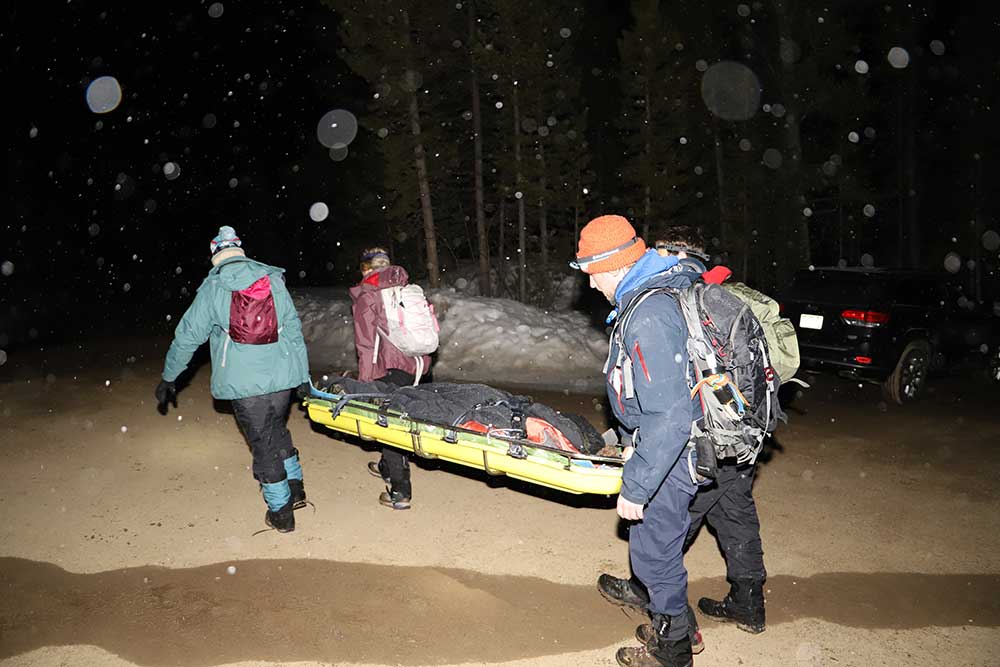
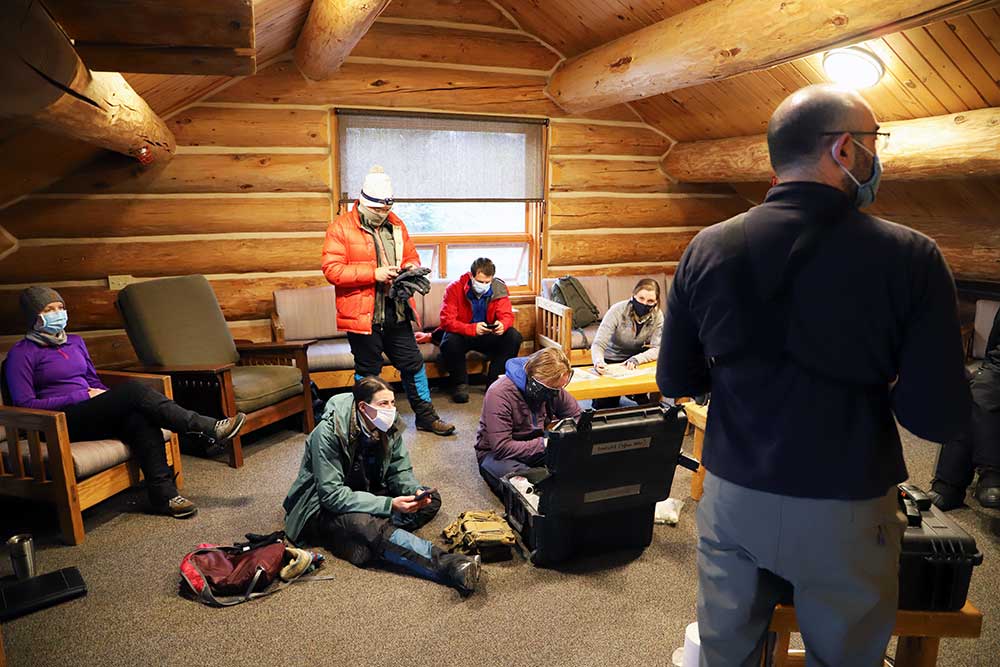
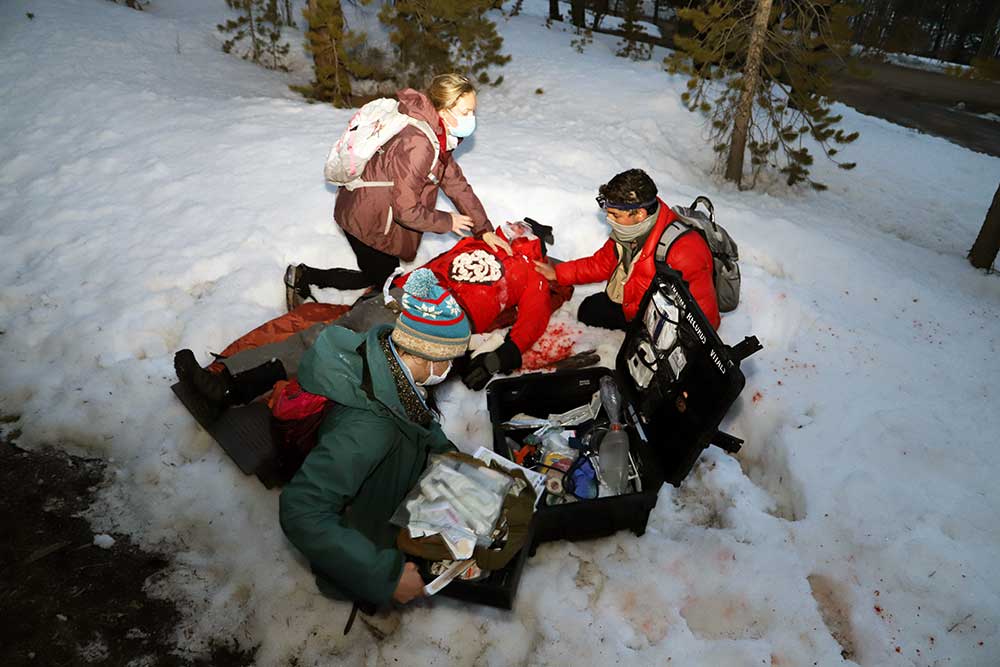
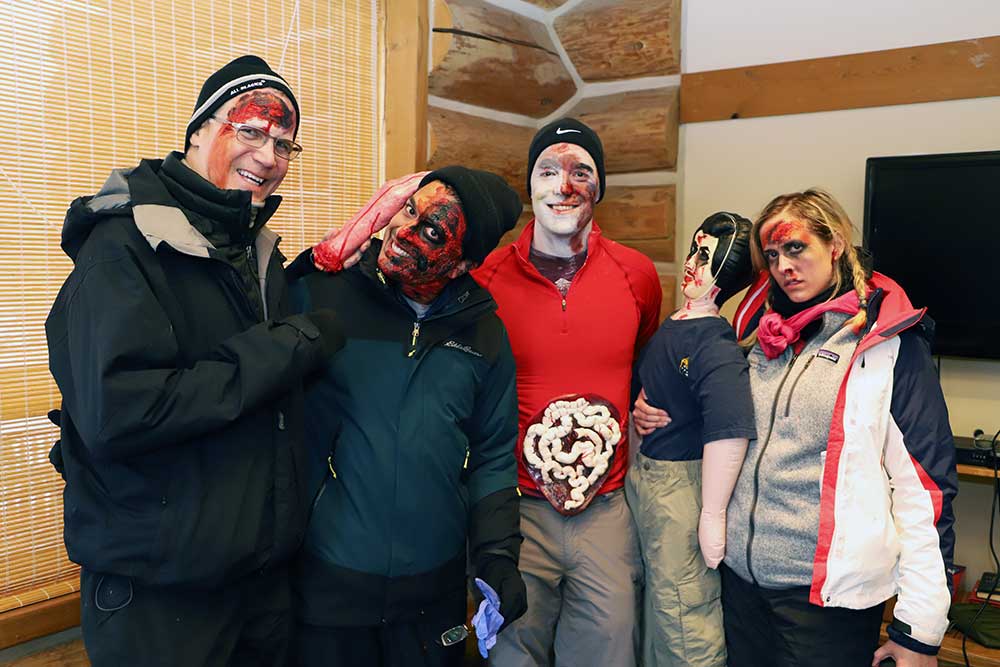
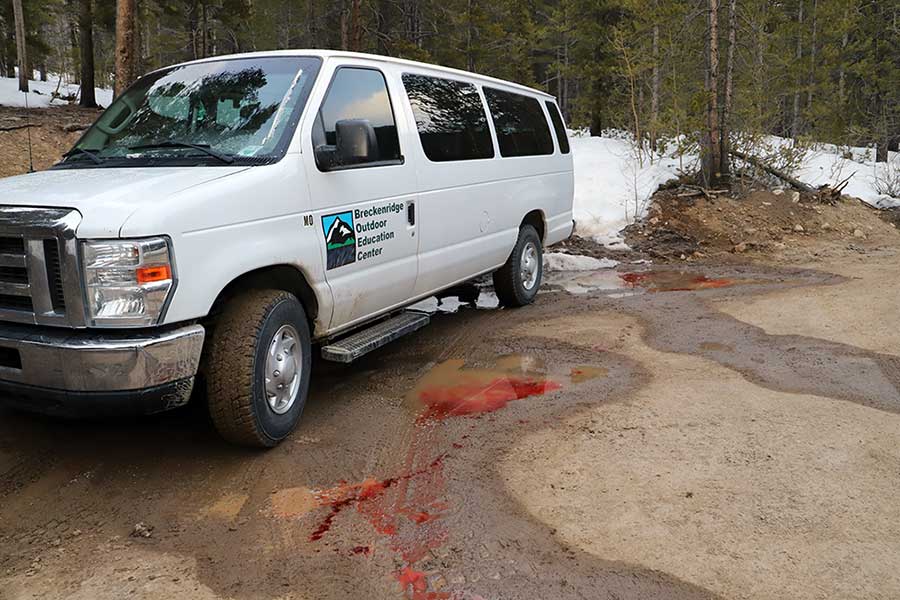
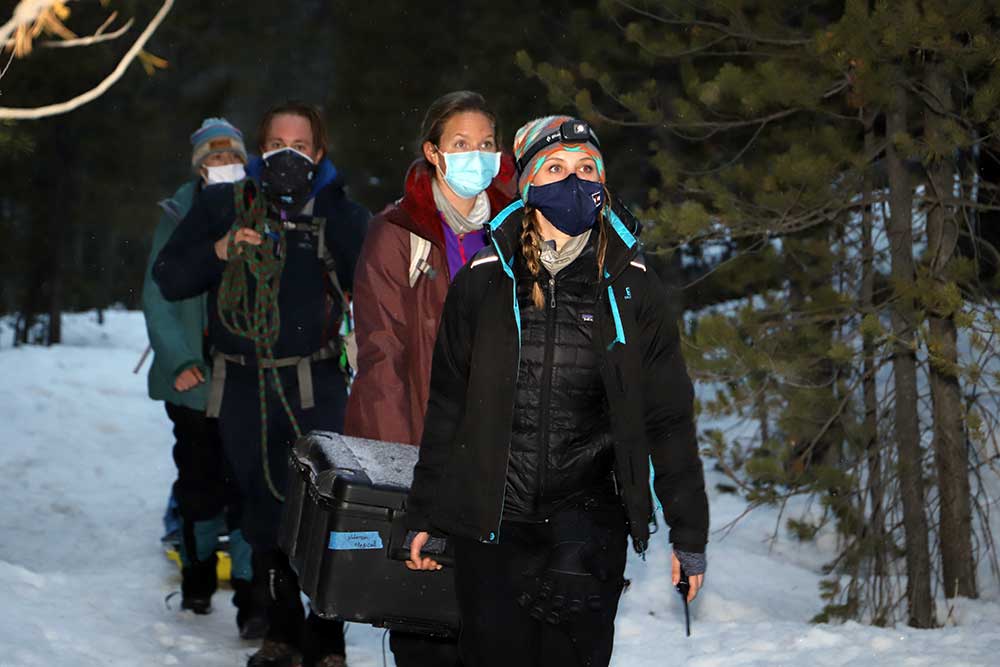
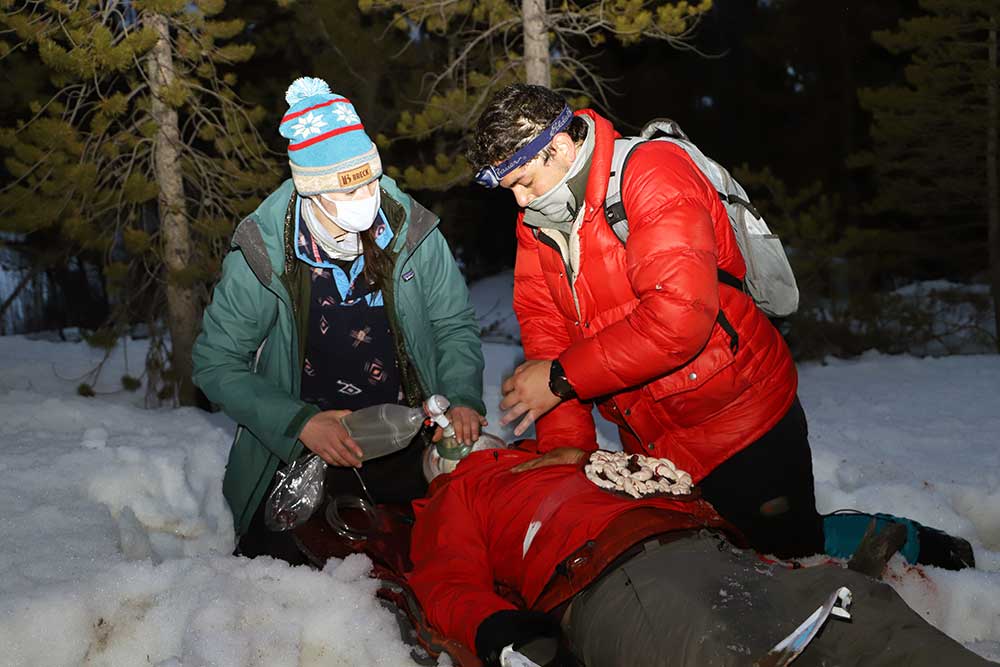
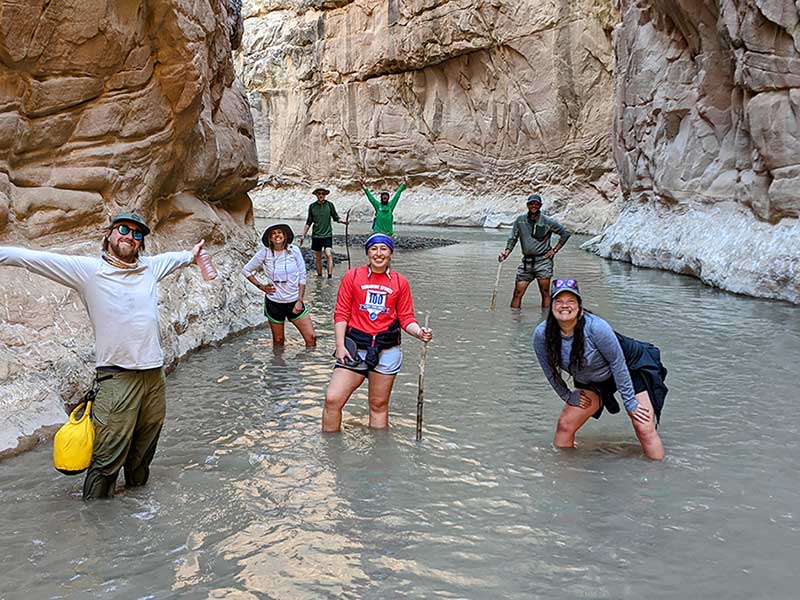
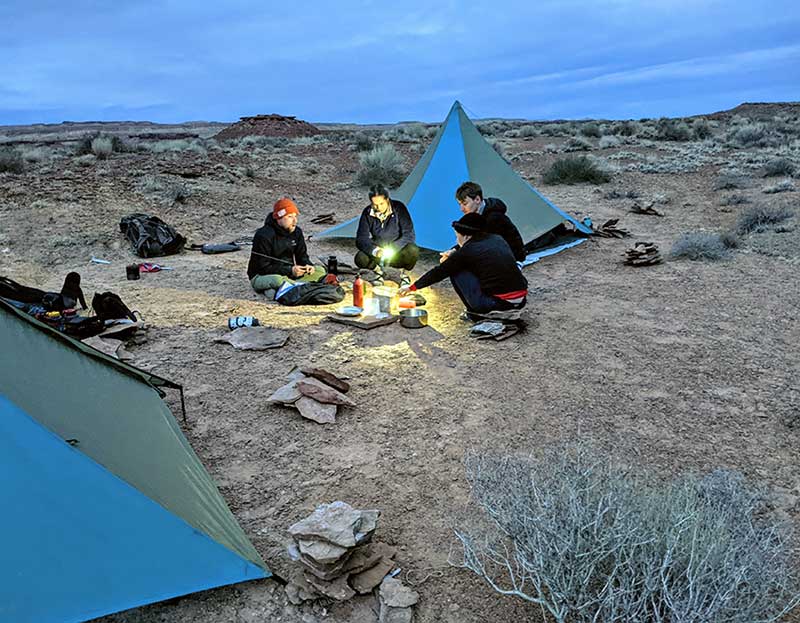
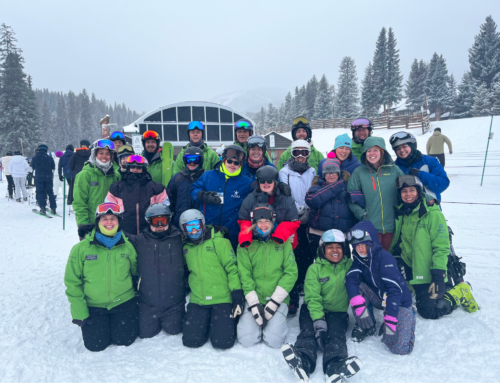
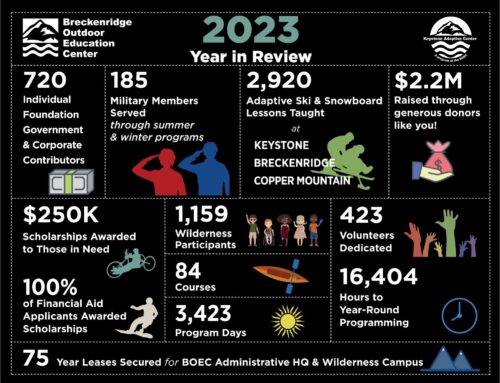
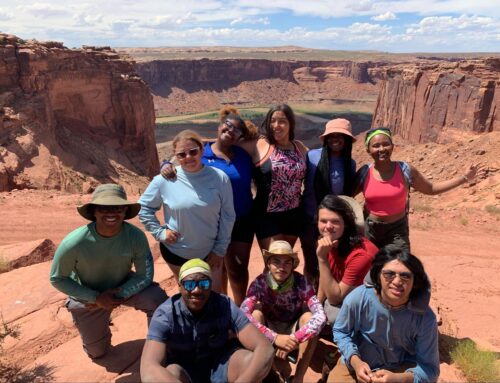

Leave A Comment